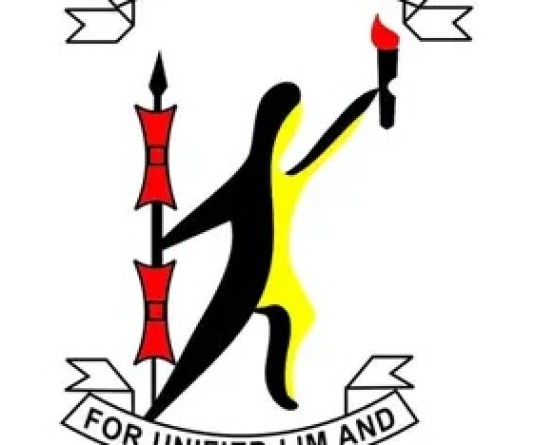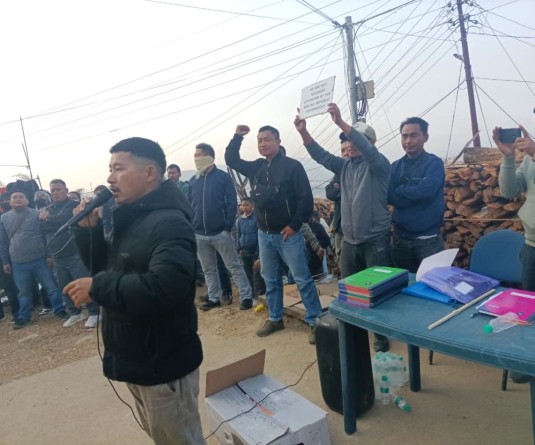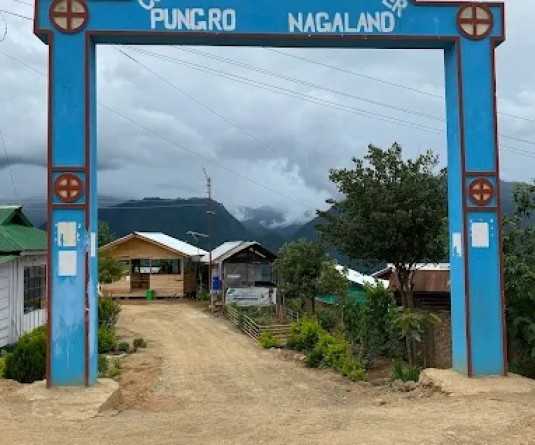
KOHIMA, AUGUST 31 (MExN): The Global Naga Forum commemorated the 77th anniversary of the declaration of Naga Independence on August 14 under the theme ‘The Naga People’s Survival Depends on Resilience, Unity, and Strategic Action.’ The event, held online, saw participation from Nagas worldwide.
Moderators Dr. Theyiesinuo Keditsu, Assistant Professor at Kohima College, and Eli Kilentola Jamir, a holistic counselor and trainer, began the program with introductory remarks. Dr. Keditsu described the event as a "collective exploration" and reminded the gathering that they are "custodians of a legacy that pulsates in the veins of every Naga."
Prof. Paul Pimomo blessed the event with a traditional invocation, which he titled ‘Naga Metatsü Mmyanta’ or United Naga Homeland, emphasizing the oneness of the Nagas. Prof. Pimomo presented the invocation as a "celebration of this fundamental truth."
During a panel discussion on Naga perspectives, Dr. Veio Pou, Assistant Professor at the Department of English, University of Delhi, noted that the "overemphasis on the Naga political imbroglio often results in directing attention away from pressing social and economic issues." Dr. Pou stated that each panelist was tasked with providing a Naga perspective on varied issues beyond the political.
Hutovi Yeptho, General Manager, Technical Sales of SMS group, discussed viable political approaches for the Nagas. He formulated a six-point action plan, emphasizing the need to "awaken Naga consciousness," "engage with national and international public figures and civil societies," "counter false narratives," "demand accountability of the state government," "take a firm stand on which National Group(s) carry the aspirations of the Nagas," and "rally under the banner of 'Nagaland for Christ' to bring the Nagas together."
Social entrepreneur Neichute Duolo, speaking on economic resilience, remarked that the Naga homeland is a "land-linked, not a land-locked region." Duolo stressed the need for the Nagas to "adopt a new mindset and rise up to the immense economic opportunities" emerging from the strategic location of the Naga homeland. He called for a shift from a "government job-oriented mindset to nurturing entrepreneurship and business institutions," contending that this would transform the "burden of the border into engines of economic growth."
Ningreichon Tungshang, Former Convener of NPMHR Delhi, engaged the audience on Naga identity and Naga feminism. She set three foundational principles of Naga Identity: that identity is "God-given," "entitled to dignity and freedom," and is formed through "our relationship with the land." Tungshang reiterated the need to form a discourse and nurture an "organic practice of Naga nationalism," which includes "democratic decision-making practices" and addressing issues of "property and land ownership."
Er. Moa Aier, President of C-Edge College, discussed socio-economic challenges facing Naga society. He lamented that economic questions are often accused of "diluting Naga political issues," cautioning that "politics cannot survive on an empty stomach." Aier highlighted the need to address imbalances in education, reliable data on socio-economic status, and the development of strong entrepreneurship.
Gam A. Shimray, Secretary General of the Asia Indigenous Peoples’ Pact, reflected on the current geopolitical analysis of the Nagas. He emphasized the need for a "clear and collective vision" and called for "critical and constructive analyses" of the Naga movement's achievements and shortcomings.
Wrapping up the discussions, Shelmi Sankhil, an Assistant Professor at Ambedkar University, redirected attention to the ideas of Naga, Naga peoplehood, and Naga nationhood. He articulated that "a common understanding of the nature of Naga can mobilize unity," increasing resilience and impacting strategies for realizing the Naga political dream.
The event concluded with a vote of thanks from Prof. Rosemary Dzuvichu, the co-convenor of the Global Naga Forum.






